13.05.17 // Updated My Physics Window For The First Time In Ages! Had Some Thoughts Over The Past Few
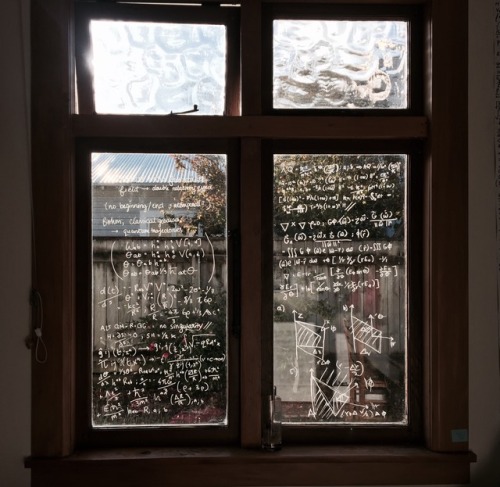
13.05.17 // Updated my physics window for the first time in ages! Had some thoughts over the past few weeks surrounding a free scalar field universe model so I drew them up as well as some old game theory because I watched a Beautiful Mind and felt nostalgic. I hope you are all having wonderful days / evening / whatever plane of existentialism you currently observe 😉
More Posts from Theperpetualscholar and Others
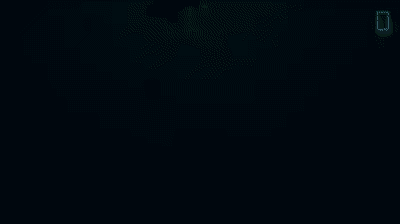
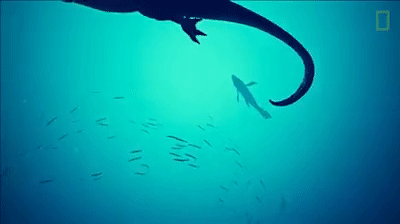
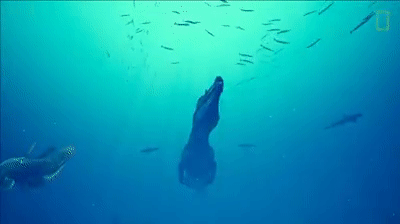
New fossils suggest that spinosaurus was fully aquatic, meaning we have to re-imagine this bigger-than-T. Rex dino’s looks and behavior. Video and article from National Geographic.

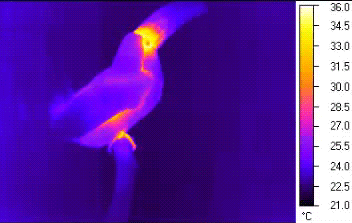
This GIF shows how the toucan releases heat using its beak to cool itself off.
The toucan beak isn’t just beautiful, it’s also an adjustable thermal radiator that the bird uses to warm and cool itself. When the bird is hot, the blood vessels in their beak open up to allow more circulation to enable heat to escape. Birds can’t sweat so evolution has come up with some life hacks to get the job done. [video]
Don’t let anyone tell you that physics isn’t poetry; the only difference is that for us, the universe is the page on which we spill our souls.
- Physicists-need-love-too, 3.57 am (via physicists-need-love-too)

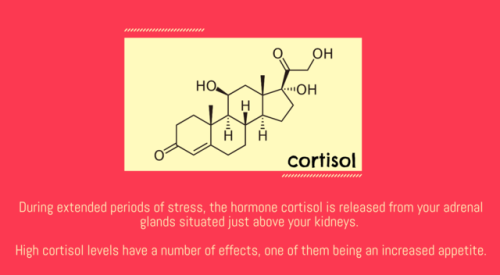
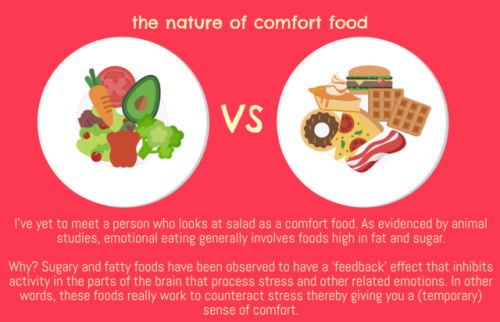



Why Do We Stress Eat?
Whether its exams, work or relationships modern life is pretty stressful stuff. It’s not uncommon for us to turn to food to relieve the often heavy emotional burdens life presents us with. But what drives us to do it? And why are some foods classed as “comfort foods”? More posts like this about the human brain and behaviour on @tobeagenius



Nictitating Membrane: a transparent or translucent third eyelid present in some animals that can be drawn across the eye for protection and to moisten it while maintaining vision




A note on Nuclear Fission
When an atom fissions, it releases a teeny tiny amount of energy ( The decay of one atom of uranium-235 releases about 200MeV or about 3*10-11J.). But atoms are quite small. An atom does not make a big explosion when it splits.
To get a big explosion, you need to split lots and lots and lots and lots and lots and lots and lots and lots and lots of them—many, many trillions of them.
Each one releases only a teeny amount of energy, but when you add up the teeny amount of energy from trillions and trillions and trillions of atoms, then you get a big explosion. (The explosion of 1kg of TNT releases 4MJ).
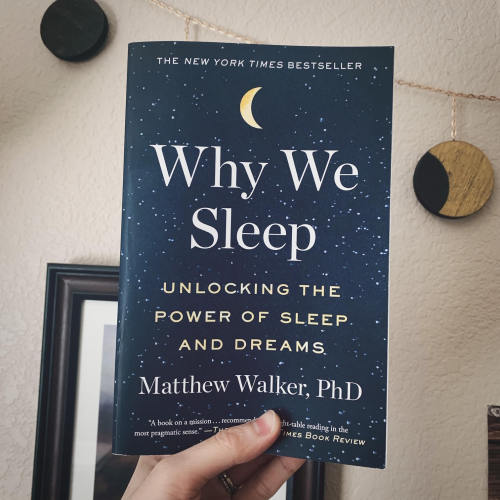
Why We Sleep: Unlocking the Power of Sleep and Dreams by Matthew Walker
THIS BOOK is life changing. (Even Bill Gates thought so!) I learned so much, and not just scientific facts that satisfy my curiosity. My (seemingly defunct) sleep habits have been validated, and I’m now empowered with ways to drastically improve my physical, mental, and emotional health. Ever since finishing the book I’ve been enthusiastically telling others to please read it.
Some things I’ve personally learned:
Being a night owl, early bird, or somewhere in the middle is genetic. We literally can not change this “habit”, because it’s not a habit; it’s a biological function. About 40% of people are early birds, 30% are night owls, and 30% are in the middle. The theory as to why we’ve evolved this way is because as a social species, this natural ability to take turns keeping watch at night improves our survival as a whole. Thus we as a society need to rethink and rework the ways that our world favors early birds and shuns night owls.
All teenagers have a shift in circadian rhythm that is different than young children and adults. They literally can not naturally fall asleep until well past midnight, and thus should not be waken up until after their 8 hours of sleep. What parents–and society–expecting teens to go to bed by 10 pm and wake up by 6 or 7 am for school is like asking an adult to go to bed at 7 or 8 pm, and then wake up at 4 am. Horrible, right? And yes, that chronic sleep-deprivation does have real consequences, such as a link to increased physical and mental illness.
The natural human sleep schedule is a continuous 7-8 hours at night, and a brief 30 - 60 min nap in the afternoon. Studies have shown that in cultures where this schedule has been suddenly disrupted (like a study in Greece), people with no history of cardiovascular disease suddenly showed a 37% increase in the chance of dying from heart disease (vs those who still maintained a mid-day napping schedule) over the 6-year study period. Yikes.
Oh, btw, that whole observation in Western Europe about people sleeping in 2 segments in the night (and waking up in the middle to eat, socialize, etc) is not a biological thing, but rather, cultural. That is not how humans have evolved to sleep.
I think we’re all kind of familiar with knowing that sleep is attached to remembering facts, but sleep is also necessary for learning new facts. Thus a good night’s rest is not just essential for doing well on tomorrow’s exam, but also for remembering tomorrow’s lecture in another class. To put it another way: you retain short-term memories in the hippocampus, but it has a storage limit (like a USB stick). Thus sleep helps move those memories into long-term storage so you can remember them, and by doing so, also frees up that space for new memories.
Sleep is also essential for learning new motor skills. If you’re having trouble with say, playing a difficult piece on the piano, try again after a full night’s rest. When you’re sleeping, your brain is still actively working perfecting that sequence of piano keys you need to press. Thus the adage of “practice makes perfect” should be amended to “practice and sleep makes perfect”.
Sleeping 6 hours/night for 10 days straight will cause a cognitive decline equivalent to staying up for 24 hours straight. And for those of us who keeps that exact same sleep schedule and think we’re “fine”, we really don’t realize how not fine we are because we think that’s our baseline normal. If you’ve ever wished to have more energy and be more productive, sleeping more may just be your magical wish-granting-genie.
Every hour in the US someone dies from a car accident caused by someone behind the wheel not getting enough sleep, due to the brain essentially “blacking out” to outside stimulus for a few seconds during a micro-sleep. As a perspective: a drunk driver is merely slow at reacting to say, slamming the brakes; a sleep-deprived driver going through a micro-sleep doesn’t react at all.
Heart attacks across the US spike significantly the day following daylights savings when everyone loses an hour of sleep. The opposite is true when we gain back that hour in the fall: heart attacks drop the following day. And that’s just one piece of evidence that sleep supports a healthy heart.
Sleeping 4 hours/night for just six nights increases your blood glucose levels so much you would be classified as pre-diabetic.
It’s well known that alcohol can disrupt REM sleep. What was interesting is that alcohol-disrupted sleep can interfere with memory (and thus learning) even up to three nights later, even if you get 2 full nights of sleep before consuming alcohol. Therefore, if you have an exam on Monday, drinking on the Friday before will interfere with remembering everything you’ve studied the previous 2 days.
Blue light, like those emitted from LED lightbulbs and the phone/tablet/computer screen you’re reading this from, stimulates our brain to wake-up and to stay awake. The evolutionary hypothesis for this is that we–and all land animals–evolved from marine life in the ocean, where the only visible light is blue, and therefore our brains recognize blue light as a cue to wake up.
And that’s just a small fraction of the super interesting life-changing things I gained from this book. So if you found these tid-bits fascinating, I highly suggest checking it out!
Crow parent waiting patiently for some snacks, teenage crow waiting not so patiently.
-
 epekeina reblogged this · 11 months ago
epekeina reblogged this · 11 months ago -
 casiopeasmiles liked this · 1 year ago
casiopeasmiles liked this · 1 year ago -
 asterisquue liked this · 1 year ago
asterisquue liked this · 1 year ago -
 payetagouine liked this · 1 year ago
payetagouine liked this · 1 year ago -
 giletoocerhi liked this · 1 year ago
giletoocerhi liked this · 1 year ago -
 trafaryvmarro liked this · 1 year ago
trafaryvmarro liked this · 1 year ago -
 lifune liked this · 1 year ago
lifune liked this · 1 year ago -
 naanaiii reblogged this · 1 year ago
naanaiii reblogged this · 1 year ago -
 naanaiii liked this · 1 year ago
naanaiii liked this · 1 year ago -
 silvercrystal1 reblogged this · 1 year ago
silvercrystal1 reblogged this · 1 year ago -
 lvnarsapphic liked this · 1 year ago
lvnarsapphic liked this · 1 year ago -
 praeficio reblogged this · 1 year ago
praeficio reblogged this · 1 year ago -
 angelstourniquet liked this · 1 year ago
angelstourniquet liked this · 1 year ago -
 alternatingurrent reblogged this · 1 year ago
alternatingurrent reblogged this · 1 year ago -
 alternatingurrent liked this · 1 year ago
alternatingurrent liked this · 1 year ago -
 outniched liked this · 1 year ago
outniched liked this · 1 year ago -
 phoenixdiedaweekago reblogged this · 1 year ago
phoenixdiedaweekago reblogged this · 1 year ago -
 dreamerwriternstargazer liked this · 1 year ago
dreamerwriternstargazer liked this · 1 year ago -
 fatafolle liked this · 1 year ago
fatafolle liked this · 1 year ago -
 thedancingcat liked this · 1 year ago
thedancingcat liked this · 1 year ago -
 celiaelise liked this · 1 year ago
celiaelise liked this · 1 year ago -
 demonicapex reblogged this · 1 year ago
demonicapex reblogged this · 1 year ago -
 praetyger reblogged this · 1 year ago
praetyger reblogged this · 1 year ago -
 abitchlikethis liked this · 1 year ago
abitchlikethis liked this · 1 year ago -
 oswlld reblogged this · 1 year ago
oswlld reblogged this · 1 year ago -
 junkyardaltar liked this · 1 year ago
junkyardaltar liked this · 1 year ago -
 darkacademicc reblogged this · 1 year ago
darkacademicc reblogged this · 1 year ago -
 m0th1c liked this · 1 year ago
m0th1c liked this · 1 year ago -
 nerdartsy liked this · 1 year ago
nerdartsy liked this · 1 year ago -
 ania-rossiya liked this · 1 year ago
ania-rossiya liked this · 1 year ago -
 vulneret-vulnerare-vulnerabas reblogged this · 1 year ago
vulneret-vulnerare-vulnerabas reblogged this · 1 year ago -
 alongwithsunrise liked this · 1 year ago
alongwithsunrise liked this · 1 year ago -
 myaukalkaa liked this · 1 year ago
myaukalkaa liked this · 1 year ago -
 eldritchsx reblogged this · 1 year ago
eldritchsx reblogged this · 1 year ago -
 emily-reads-books reblogged this · 1 year ago
emily-reads-books reblogged this · 1 year ago